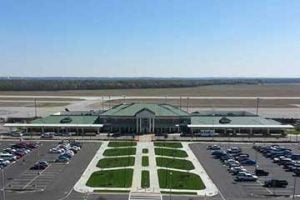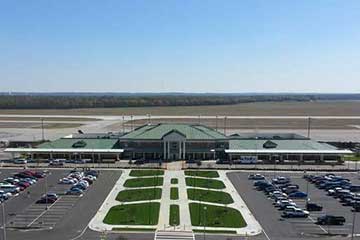Augusta will receive millions of dollars to develop its public transportation and Broad Street station.
Georgia Senator Raphael Warnock (Ga-D) and Jon Ossoff (Ga-D) recently announced three cities will share $45 million from the Bipartisan Infrastructure Law for clean energy transportation projects.
Augusta is in line to receive $12 million to use for the purchase of electric buses for the Augusta Transit Department. They will replace older buses and provide more reliable, quieter, and efficient buses.
“This was a competitive grant. We were competing against hundreds of other transit agencies throughout the country for this pot of money, and we were successful. We were one of three Georgia transit agencies that were successful in the bus and bus facilities grant and low and no emission grants,” Dr. Oliver Page, Deputy Director of Augusta Transit explained for ABD. “We worked very hard to get this grant.”

A news release announcing the funding quoted Warnock, “This is about improving our transit services for all riders and converting fleets of diesel-powered buses into clean energy vehicles to green our state for decades to come. This is a ride to the future, and this investment demonstrates the power of bipartisan cooperation to deliver tangible results for our communities.”
This is the latest step forward in Augusta’s desire to convert to an electric bus fleet.
In 2021, five electric bus manufacturers brought a vehicle to Augusta to demonstrate for the transit department and riders. Gillig, Proterra, and Build Your Dreams, are based in California. Nova Bus and New Flyer are Canadian manufacturers.
Page said they selected Gillig to supply electric buses, in part because the city uses Gillig diesel buses in its current fleet. Although diesel and electric buses are vastly different technologies, there are some similarities which may make cross-training drivers and mechanics easier.

The city received a $6.5 million grant to begin purchasing electric buses in 2022. Page said they submitted a purchase order for five electric buses in January 2024. He anticipates those will arrive in 2025.
A traditional diesel bus costs up to $500,000. An all-electric bus can cost up to $1 million. However, with lower maintenance and upkeep costs, an electric bus will offset the cost of a diesel bus in about five years. Buses are usually in service for 12-to-15 years.
“That’s a message we need to get through to the public, because when we go to the public later this year they may ask, ‘Why are you buying electric buses that are two and a half times the price of a diesel bus.’ But over the long run, electric buses pay for themselves, and right now there is far more money for clean energy buses than there is for diesel buses.”

In addition to placing an order for more buses, the $12 million also covers workforce development. The training segment of the grant will pay for upskilling current technicians to work on electric buses. It includes the purchase of a 360-degree bus simulator.
Page said it is similar to an aircraft training simulator with one major difference. The bus simulators will have monitors that surround the driver, unlike aircraft simulators that generally have monitors just in front of the person undergoing training.
“The beauty of that is when the bus driver looks forward into the front of the screen and looks into the rearview mirror, he’ll be able to see the back of the bus as it actually is. There could be people standing there. There could be people eating and drinking at the back of the bus. And so that will give him a unique perspective,” said Page. “I think we’ll be the first in Georgia that has something like that.”
This is the second grant this month the city is getting for the transit department. On July 1, Warnock and Ossoff announced $30 million in grants designed for transportation infrastructure projects.
“Since taking office, expanding and improving transportation and road safety across Georgia has been a top priority for Senator Warnock and me,” a news release quoted Ossoff. “Our bipartisan infrastructure law continues delivering long-overdue investments for Georgia’s infrastructure to ensure pedestrian and commuter safety for generations to come.”
Augusta will get $1.7 million to use at the Broad Street Transfer facility.
“The Broad Street facility is our flagship terminal,” Page said. “It was built in 1991 and basically, it’s an old, tired building, and it needs to be completely redesigned and revamped. And the $1.7 million through the Rebuilding America Infrastructure with Sustainability and Equity (RAISE) will allow us to get a consultant team to reassess the location, to look at other locations for potential transfer facility in downtown Augusta.”
Page said the infusion of millions of dollars to improve the bus fleet and infrastructure has given his staff a new sense of purpose for the future.
“But we need the people of Augusta to also share that enthusiasm and that vision,” he urged. “Some people in Augusta feel that investing in transit doesn’t make sense. It’s not worth it. But as Augusta-Richmond County grows, transit also has to grow. If Augusta wants to grow, wants to attract more businesses, wants to attract some of these big entertainers, it has to allow us to invest in transit. If the federal government can see that the city of Augusta is worth investing millions upon millions of dollars to enhance their transit system, we hope the people in Augusta, and this is Augusta realize that transit is here to complement your quality of life and to take you to where you need to go.”









